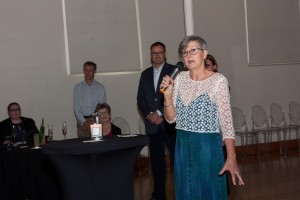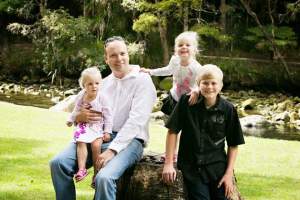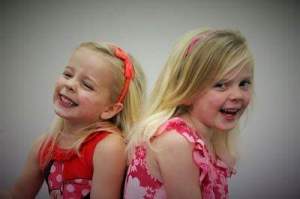By Alana Shelton, 17

Maree, Alana’s mum
Cancer was something that I had heard about. But, I think like most people, I thought it would never affect me. I didn’t know anyone who had cancer and I hadn’t seen anyone with cancer. It was a totally foreign concept.
My mother was diagnosed with breast cancer in 2010. I was 12. I thought cancer meant death. I felt scared, upset and angry. Things like this weren’t meant to happen to people like us. I thought the usual questions.
Why me? Why us? What did we do to deserve this?
There were a lot of tears, that day and the next. It took a while for me to come to terms with the facts. It was real and it was happening. My family talked about it a lot, which helped us come to terms with each other’s feelings and thoughts. I know I had a lot of questions that I wanted answering, mostly surrounding what would happen next. I was scared that this meant I would get it. Luckily my mother’s cancer was not genetic.
My mother had an operation to remove the tumour and we visited her in hospital. I think I felt a sense of relief, I thought that removing the problem would cure her. But with cancer, comes treatment. Young and unaware, I had always thought that the cancer is what made you lose your hair, but I got told they would be pumping chemicals into my mother’s body, causing her hair to fall out. The chemotherapy began affecting my mother. We watched her become exhausted, suffer from memory loss and much to our amusement, she lost her sense of taste. Macaroni and cheese with sweet chilli sauce really doesn’t make the cut with three hungry children.
She spent a lot of time in bed and we all had to step up within the household. I often felt it wasn’t fair that we had to do the housework. I was frustrated. Why did we deserve this? I remember mum came home with her hair shaved off, prepared for the hair to begin falling out. I had never seen my mother this way before, and I saw her struggle to come to terms with losing her hair. I felt guilty when I got frustrated at people staring at her in public, because I knew I used to do the same.
Cancer taught me a lot of coping mechanisms. It also taught me to be very accepting.
I felt guilty for having bad days or complaining when I knew that my mum had it worse, or other people had it worse. I know now that it is okay to feel bad for yourself. Cancer has a ripple effect. It effects the people around them too. And it isn’t always negative effects. Because of my mother’s cancer, my family has been brought closer together. We share everything, look out for each other and have our own support network. Mum has had more tumours, and has received more radiotherapy each time. She is always on tablets and the treatment is on-going. She now beeps going through airport security due to a metal hip and we often joke there isn’t much of the original her left.
There is a catch these days though. She doesn’t look sick. This makes it easier to live ‘normal lives.’ When people find out our mum has cancer they are often surprised, especially with the ease at which I can talk about it. I have realised that my mum is not going to die tomorrow. Yes, she will get cancer again but there is no point getting bogged down about the future, if she is ‘healthy’ now.
I found that Cancer needs a dictionary. Many of the treatments, tumours, tablets etc. have long names which mean nothing to a now 17 year old girl. Because of this, my family has created our own lingo. Mums bone infusion is now called “bone juice” and Zoladex is known fondly as “the bullet.” Sometimes I forget other people don’t understand this slang, and I receive some pretty weird looks talking about bone juice!
As I have come to terms with her cancer, I have found my extreme emotions have lessened because I have learnt to deal with it. She still has bad days, and we do what we can to try and take the edge off.
Click here to watch the amazing video, Alana’s mum Maree did earlier this year.
 Andy Williams’ Christmas song “The Most Wonderful Time of the Year” has lovely lyrics but it is also a time of high expectations. The start of the school holidays and forthcoming festive break can present a dizzying array of demands — children’s concerts, parties, shopping, baking, cleaning and entertaining…let alone time to look after yourself! Perhaps you are thinking how can I celebrate when there is so much uncertainty in my life?
Andy Williams’ Christmas song “The Most Wonderful Time of the Year” has lovely lyrics but it is also a time of high expectations. The start of the school holidays and forthcoming festive break can present a dizzying array of demands — children’s concerts, parties, shopping, baking, cleaning and entertaining…let alone time to look after yourself! Perhaps you are thinking how can I celebrate when there is so much uncertainty in my life? 






